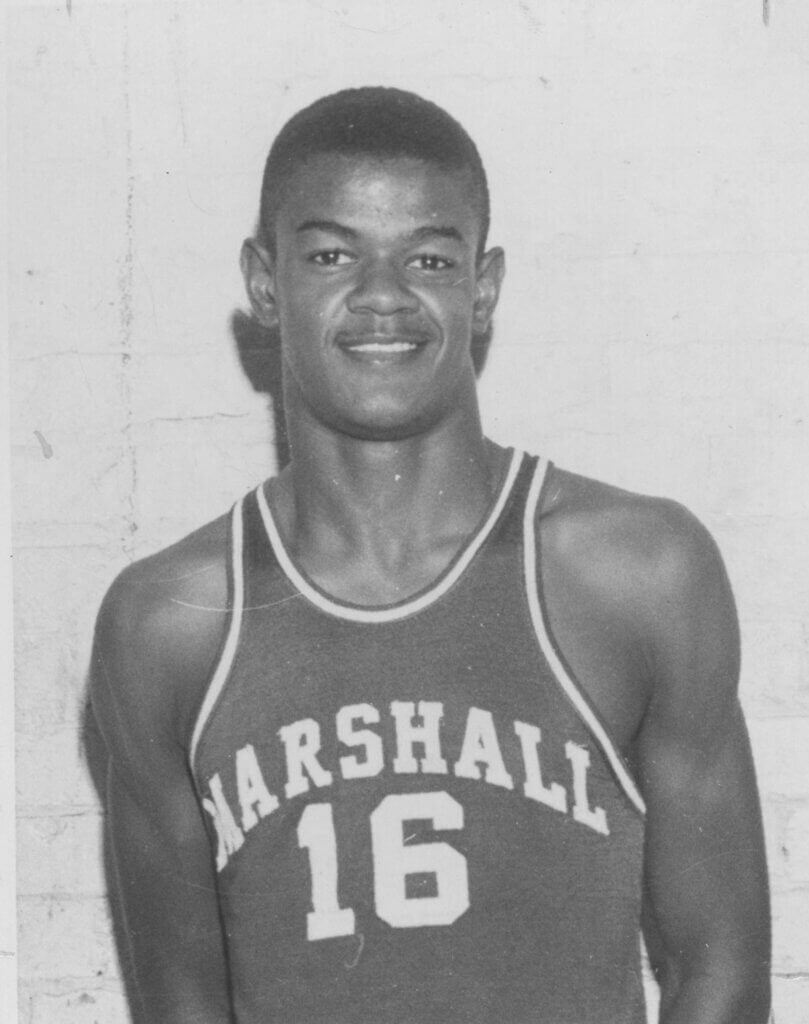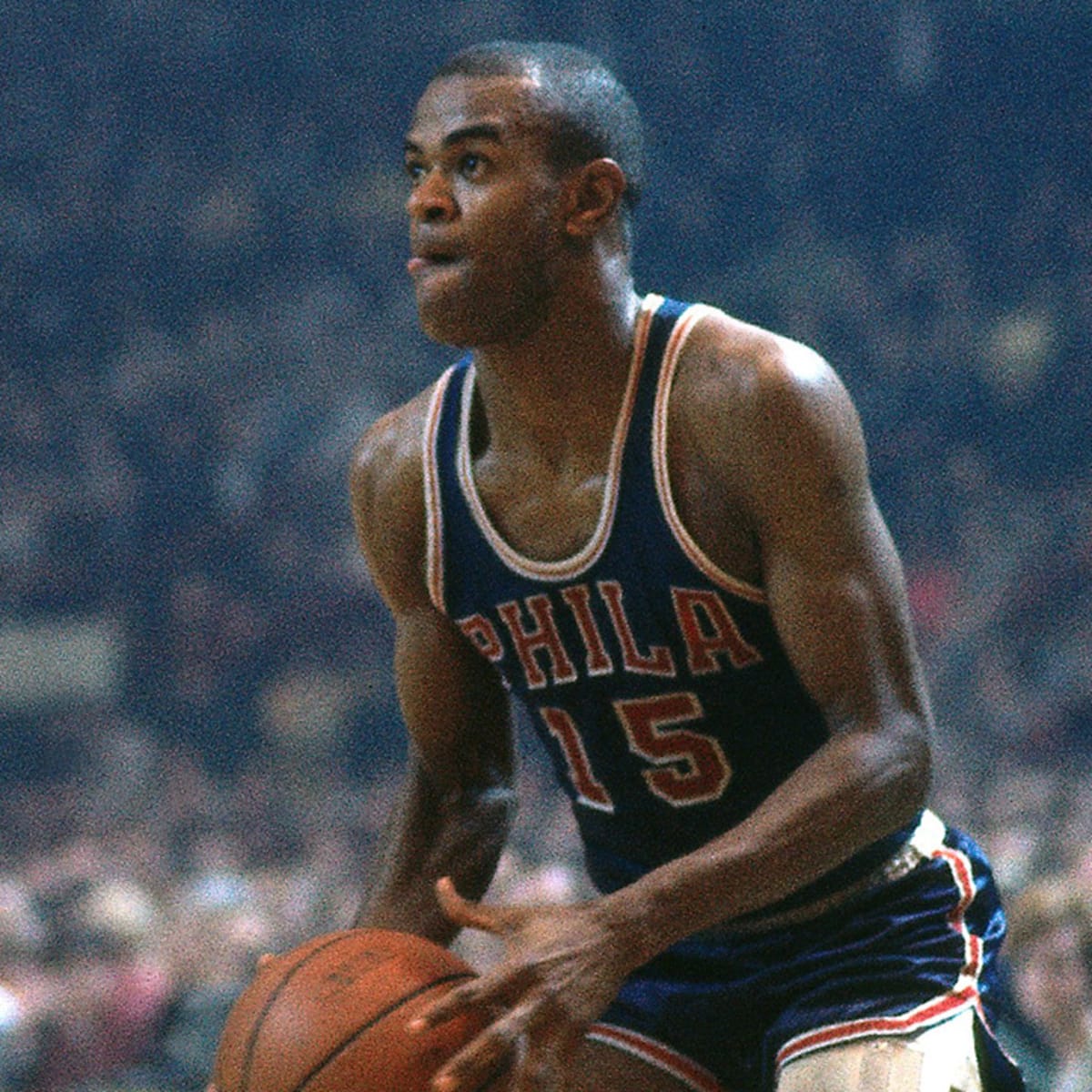Hal Greer
Hal Greer

Hal Greer, born on June 26, 1936, was a highly esteemed American professional basketball player renowned for his tenure with the Syracuse Nationals and Philadelphia 76ers in the National Basketball Association (NBA). His career spanned from 1958 to 1973, during which he established himself as one of the premier guards in the league.
Greer's remarkable career was highlighted by numerous accolades, including being selected as a 10-time NBA All-Star and earning placement on the All-NBA Second Team seven times. His exceptional skills and contributions to the game earned him recognition as one of the 50 Greatest Players in NBA History and a spot on the NBA 75th Anniversary Team.
Throughout his career, Greer wore the uniform of the Syracuse Nationals and later the Philadelphia 76ers with distinction, solidifying his legacy as a revered figure in the franchise's history. His impact on the game was further honored with the retirement of his jersey number by the Philadelphia 76ers.
In recognition of his outstanding achievements and contributions to basketball, Greer was inducted into the Basketball Hall of Fame, cementing his place among the sport's all-time greats. His legacy continues to be celebrated by basketball enthusiasts and fans of the NBA.
Hal Greer, hailing from Huntington, West Virginia, began his basketball journey at Douglass Junior and Senior High School in his hometown. Representing Douglass' men's basketball team as a guard, Greer showcased his early talent and passion for the sport.
Upon graduating from high school, Greer continued his academic and athletic pursuits at Marshall University. His enrollment at Marshall marked a significant milestone as he became the first African American to play for a public college in West Virginia.
During his collegiate career with the Marshall Thundering Herd's basketball team, Greer left an indelible mark on the program. He emerged as a standout player, setting records and earning accolades along the way. Greer's remarkable achievements included scoring 1,377 points with an impressive .545 field goal percentage, establishing a Marshall record.
In 1956, Greer played a pivotal role in Marshall's success, helping the team capture the Mid-American Conference championship and securing their first NCAA men's basketball tournament appearance. His stellar performance on the court earned him recognition as All-Mid-American Conference in 1957 and 1958, as well as All-American honors in 1958.
Throughout his time at Marshall, Greer demonstrated remarkable skill and versatility, averaging 19.4 points per game and 10.8 rebounds per game. In his senior year in 1958, he elevated his game even further, averaging an impressive 23.6 points per game.
In addition to his basketball prowess, Greer also showcased his athletic abilities on the baseball diamond, playing as a first baseman for Marshall's baseball team during his sophomore year.
Greer's collegiate career laid the foundation for his future success in professional basketball, serving as a testament to his talent, dedication, and trailblazing spirit as one of West Virginia's pioneering athletes.
Selected by the Syracuse Nationals with the 13th pick in the 1958 NBA draft, Hal Greer began his professional basketball journey with the Nationals. Over the course of five seasons with Syracuse, Greer showcased his scoring prowess, steadily improving his scoring average to an impressive 22.8 points per game by 1961. That same year, he earned a spot on the NBA All-Star team, a testament to his growing reputation as one of the league's premier guards.
During his illustrious 15-season career, Greer remained a stalwart member of the Philadelphia 76ers franchise, amassing a total of 21,586 points. In 1963, the Syracuse Nationals relocated to Philadelphia, rebranding as the Philadelphia 76ers, where Greer continued to shine on the court. Teaming up with legendary center Wilt Chamberlain, Greer played a pivotal role in the 1966–67 76ers team that clinched the NBA championship. His performance during the playoffs that season was particularly noteworthy, with Greer averaging a team-best 27.7 points per game.
Known for his unorthodox yet highly effective free throw technique—a jump shot from the charity stripe—Greer earned recognition as one of the top guards of the 1960s, often mentioned alongside legends like Oscar Robertson and Jerry West. His remarkable contributions to the game were further highlighted by his selection to 10 NBA All-Star Games, including a memorable MVP performance in 1968 when he scored a record-breaking 19 points in a single quarter.
Greer's impact extended beyond individual accolades, as he was also named to the All-NBA Second Team seven times. By the time of his retirement after the 1972–73 season, Greer had cemented his legacy as one of the all-time greats, holding franchise records for points scored, field goals, field goal attempts, games played, and minutes played for the Philadelphia 76ers. His remarkable achievements and lasting influence continue to be celebrated in the annals of NBA history.
References
- Dr. Alan B. Gould (July 1985). "National Register of Historic Places Inventory Nomination Form: Douglass Junior and Senior High School" (PDF). State of West Virginia, West Virginia Division of Culture and History, Historic Preservation. Retrieved July 23, 2011.
- a b "June 26, 1936: NBA Hall of Famer Hal Greer Born in Huntington | West Virginia Public Broadcasting". Wvpublic.org. June 26, 2017. Retrieved April 17, 2018.
- ^ "Greer Still Fond of Marshall, Field House :: Marshall Thundering Herd Athletic Site :: Men's Basketball". Herdzone.Com. February 9, 2012. Archived from the original on April 17, 2018. Retrieved April 17, 2018.
- a b c d "Hal Greer broke color barrier in W.Va. sports | News". herald-dispatch.com. February 27, 2008. Retrieved April 16, 2018.
- a b c d "Marshall basketball legend Hal Greer dies at 81 | Marshall University". wvgazettemail.com. Retrieved April 17, 2018.[permanent dead link]
- ^ "Basketball legend returns home | Marshall Sports". herald-dispatch.com. February 9, 2012. Retrieved April 16, 2018.
- a b c "Hal Greer, the first black player in Marshall University... – UPI Archives". Upi.com. February 20, 1982. Retrieved April 16, 2018.
- a b "Hall of Famer, Philadelphia 76ers legend Hal Greer dies at 81". USA TODAY. Retrieved April 16, 2018.
- a b c d "Hall of Famer Hal Greer, the Philadelphia 76ers' all-time leading scorer, dies at 81". Los Angeles Times. Associated Press. April 16, 2018. Retrieved April 17, 2018.
- ^ "» The Short-Lived, Cocaine Funded Philadelphia Kings Philly Sports History". Phillysportshistory.com. Retrieved April 17, 2018.
- ^ "BREAKING: Huntington native, NBA legend Greer dies at age 81 | News". herald-dispatch.com. February 10, 2012. Retrieved April 17, 2018.
- ^ "Marshall Athletics Hall of Fame". Herdzone.com. November 14, 1970. Archived from the original on April 17, 2018. Retrieved April 16, 2018.
- ^ Rogers, Thomas (February 21, 1982). "Reed Named to Hall of Fame – The New York Times". The New York Times. Retrieved April 17, 2018.
- ^ "76ers unveil statue honoring HOF guard Hal Greer". Philly. February 11, 2017. Retrieved April 16, 2018.
- ^ Payne, Leah (October 9, 2021). "Hal Greer honored with dedication of statue on Huntington campus". marshall.edu. Retrieved October 10, 2021.


















































